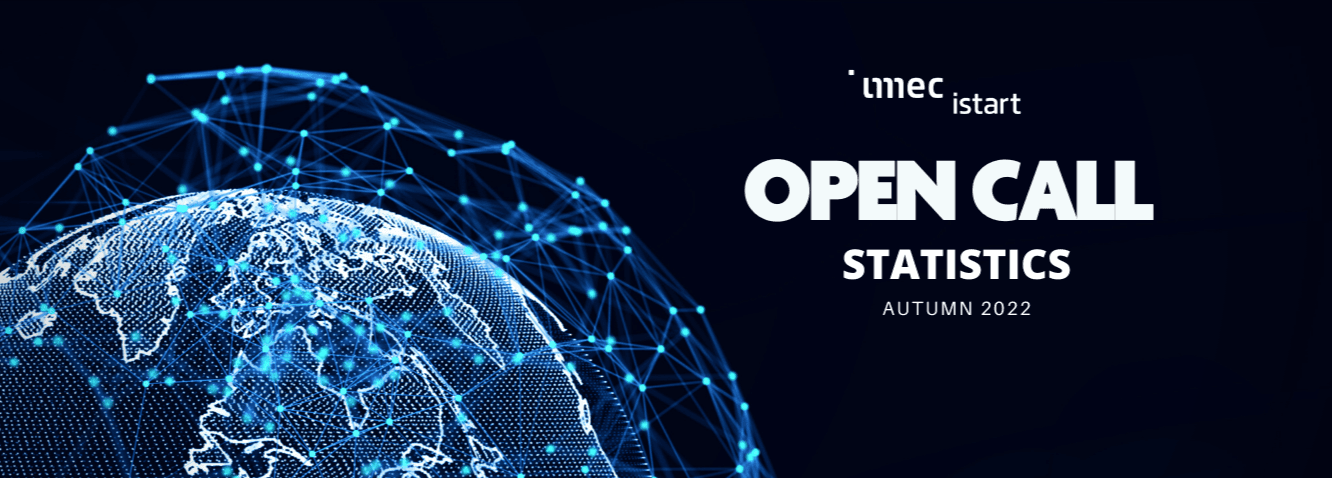
imec.istart Autumn 2022 Open Call Statistics
We officially closed our Autumn 2022 Call, this year’s 3rd opportunity for startups to apply for imec.istart funding and support. We are incredibly excited to discover the next generation of startups and welcome a new cohort of entrepreneurs to join our expanding community.
Since our previous call 4 months ago, we spoke to more than 135 (soon-to-be) founders to help them figure out whether imec.istart could be the right partner at this point in their journey. Time and time again, we are blown away by their collective commitment to build powerful solutions to address important societal problems. While some of them were still too early to apply for imec.istart, others seemed like a textbook match.
So while the majority of our team is currently dedicating their time to reviewing all applications, we made an effort to better understand some of the trends in the current entrepreneurship landscape. To do so, we mapped the insights of our Autumn 2022 applications with those of the many conversations we’ve had with founders prior to our call deadline on October 1st.
Here's what we have learned.
1. Industry
HealthTech comes out on top again, as over 21% of the entrepreneurs we’ve talked to are focused on building solutions to cater to important healthcare needs. With almost 18%, Business Services come in as a close second, while industries such as EdTech, Consumer Products, HRTech and SportsTech are also clearly showing increased activity. On the flip side, we noticed fewer conversations with startups active in sectors such as AgriTech, Utilities and Mobility this time around.
Comparing it to the actual Autumn 2022 applications, we notice that HealthTech remains the industry that most of our applicants are tapping into, however represented by only 12,5% instead of the 30% during our last call. Business Services and – surprisingly – MediaTech both take second place with more than 9% each, while Consumer Services comes in third with close to 8% of all applications. FinTech, Manufacturing and SportsTech occupy the 4th place with almost 5% respectively, while the rest of the applications are spread across many other industries.
* These are the industries applicants have marked as their main industry, but their scope is often wider.
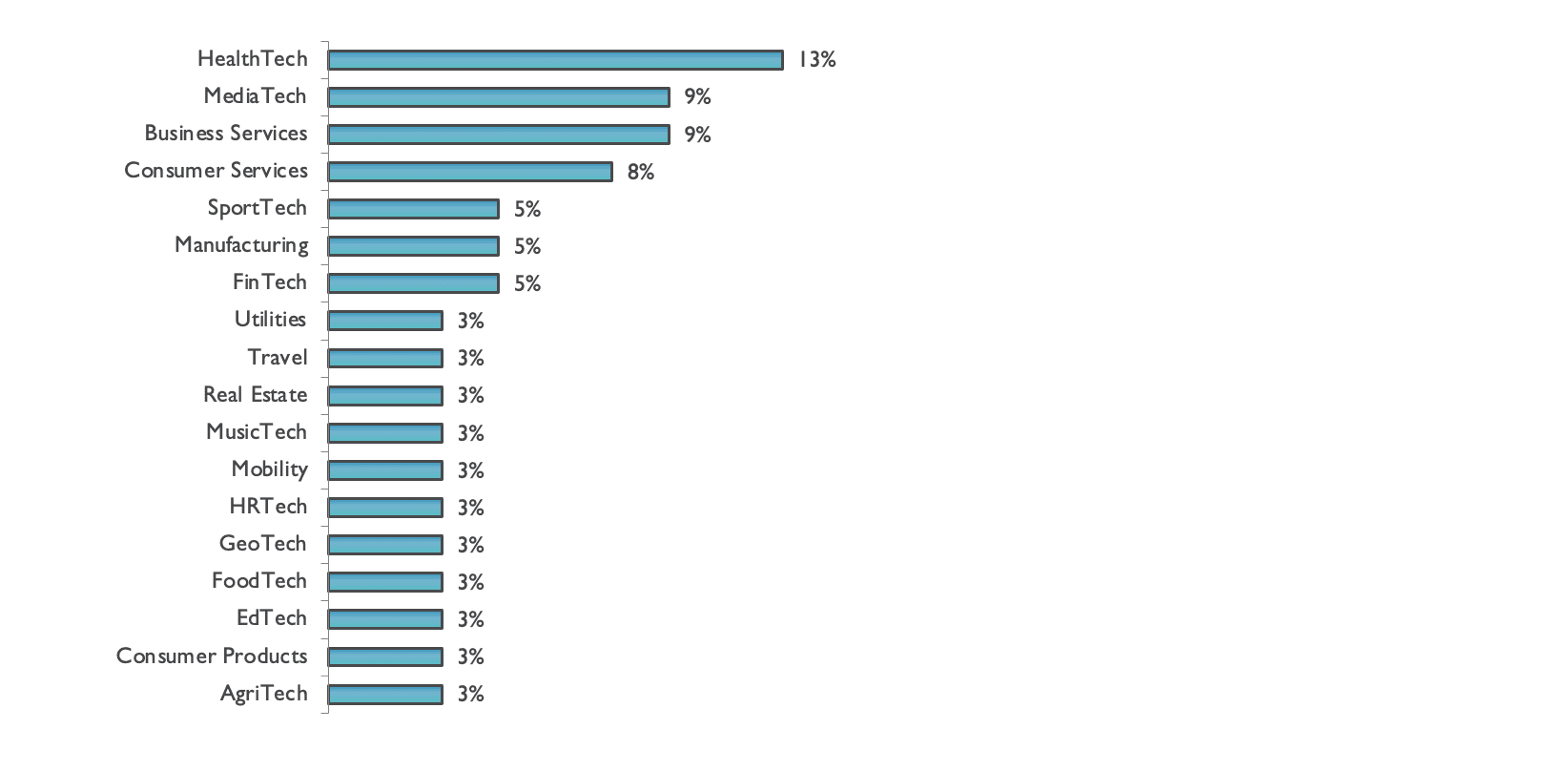
2. Technology
Similar to previous calls, it seems that the majority of startups we spoke to are building solutions where they leverage – or plan to leverage – Artificial Intelligence as their main technological differentiator (44%). In particular, Data Mining, Search & Recommendations, Computer Vision, as well as Reasoning & Decision Support are the domains within the broader field of AI that were mostly referred to, while Natural Language Processing, Autonomous Driving/Flying, and Robotics were less represented.
We initially expected a further increase in startups that are building Blockchain solutions, Web3-based protocols, and Virtual Augmented & Mixed Reality solutions, but it remains fairly similar to previous calls with about 8% of conversations prior to the call deadline. Lastly, it was noticeable that a large number of startups were innovating less on the level of the technology and more so on the level of the application, the use case, and the business model. These “shallow tech” solutions, which we welcome as much as “deeper tech” solutions, represented about a fourth of all the conversations we had in the last 4 months.
Mapping this onto our Autumn 2022 applications, a whopping 50% of startups mention Artificial Intelligence as their main technology, of which the majority is in Search & Recommendations, Computer Vision, or a non-specified type of AI. Subdomains such as Data Mining and Natural Language Processing are also well-represented, whereas Robotics is much less represented this time around. Other popular technologies that our Autumn 2022 applicants are focusing on are Virtual, Augmented & Mixed Reality, IoT, and Blockchain solutions.
3. Founding teams
The majority of startups we spoke to beforehand had a team of 2 to 3 co-founders, but almost 24% of them were still looking for a second co-founder. This is much more compared to previous calls, where typically about 10% of the entrepreneurs we previously met were solo founders.
When we look at the Autumn 2022 applications, we see that 42% of the teams consist of 2 team members and 30% consist of 3 team members. Almost 17% of our applicants have 4 team members and 8% have 5 team members or more. Our data clearly shows an increase in outliers with bigger teams of up to 10 people compared to our previous call.
Even though we spoke to more solo founders than in any other previous call, very few of the current applications seem to be submitted by solo founders (on a surface level at least). That’s probably because, at imec.istart, we don't invest in solo founder companies. Ten years of experience show us that startups with two or more founders have a much higher success rate. But we also acknowledge that it’s not always easy to find the right co-founder, which is why we regularly organize free “co-founder matchmaking events”. At these events, entrepreneurs and entrepreneurial individuals (without an idea) can meet each other, start building a relationship and potentially team up together. Some of our current applicants even met each other at our previous edition! Our next edition will be organized on October 27th, so don’t hesitate to register here if you’re looking for a co-founder.
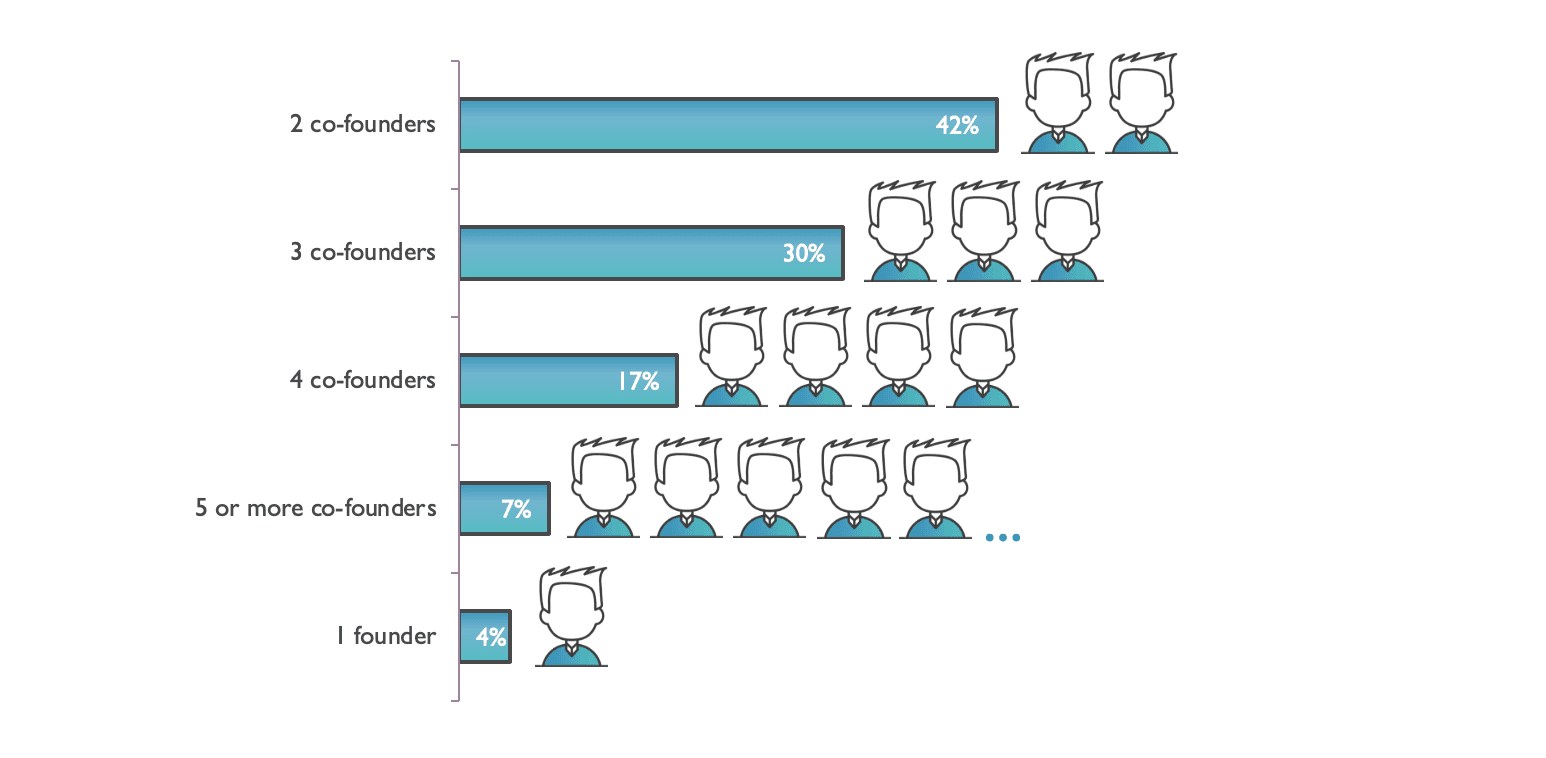
4. Location
The vast majority of founders we spoke to are based in Belgium (73%), while 10% are based in The Netherlands. That’s likely the result of the additional current awareness due to our Dutch imec.istart program (which now accepts applications until November 1st), as Dutch startups are often curious to meet with both accelerator teams to better understand the difference between Belgium and The Netherlands. Compared to our previous call, fewer international startups found their way to our open office hours this time, yet 18 other countries were represented during our conversations prior to the call deadline, including Germany, Canada, Kenya, the UK, the US, Sweden, South Africa, and Turkey.
The actual Autumn 2022 applications paint an even bigger domestic picture, as 87,5% of startups are based in Belgium. The Netherlands, Turkey, Germany, India, Tanzania, the UK, and the US take up the rest of the application pie.
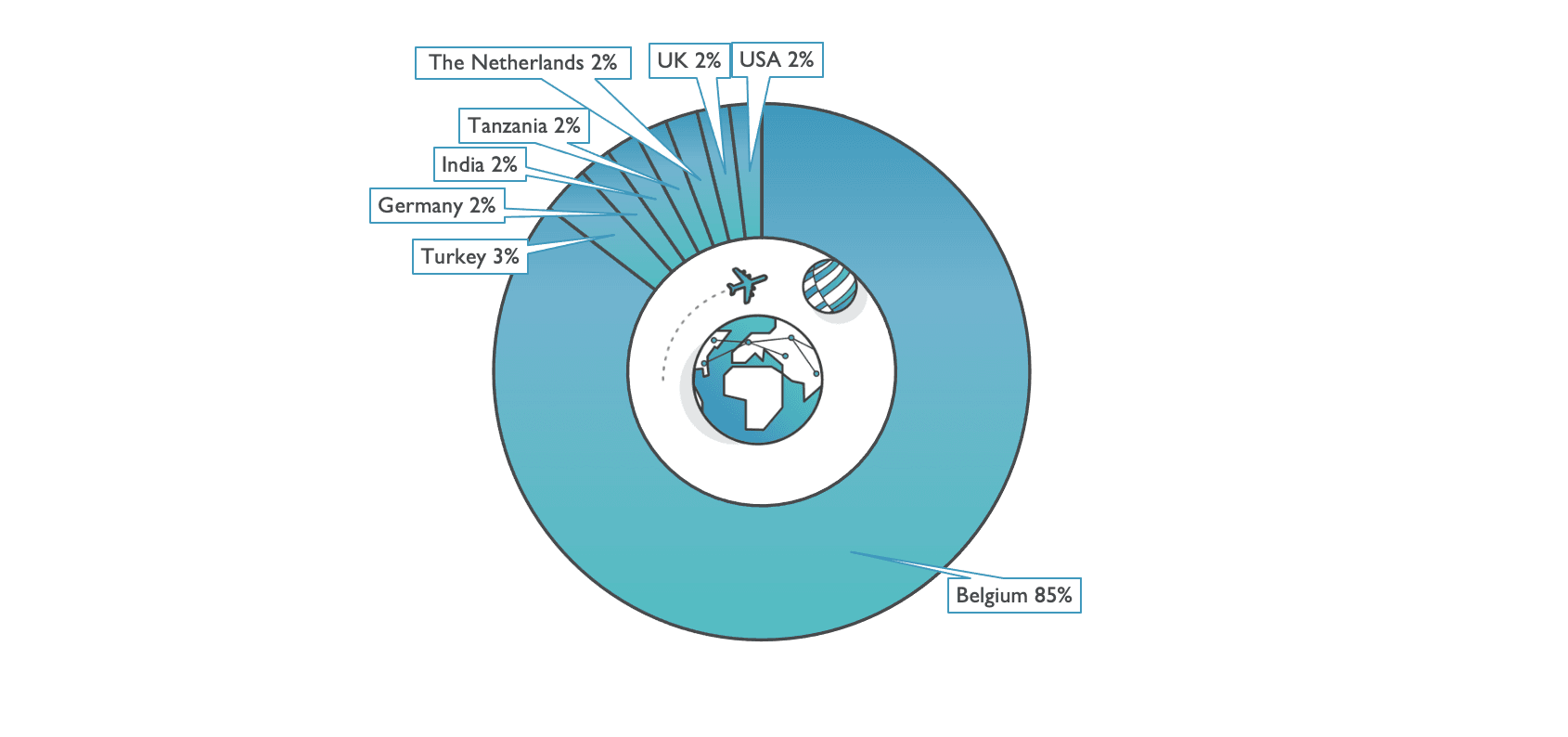
Key takeaways
Even against a bleak macroeconomic backdrop, our Autumn 2022 call clearly shows that there are plenty of entrepreneurs that choose to use this as an opportunity to build the next generation of tech ventures.
And while it remains to be seen who will make it into our new cohort of startups, it’s impossible to ignore that many of them leverage the vibrant Belgian entrepreneurship ecosystem to increase their chances of getting in. We’ve noticed a further increase in the number of applicants that have followed another (incubation) program before to applying for imec.istart (almost 52%), which confirms the importance and our commitment to keep building bridges with other initiatives to better support startups in their journey.
It’s all in the hands of the reviewers now, and we can’t wait to welcome our Autumn 2022 cohort soon. If you didn’t apply for this current call, the next opportunity to join our community will be during our Spring 2023 call, which will open on January 1st 2023.
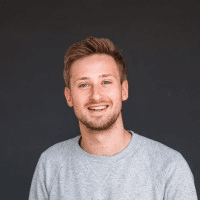
Are you building a tech startup and looking for funding and support, but not sure what to expect from imec.istart? Feel free to reach out to our colleague Maarten Van Gorp or schedule a free introductory meeting with him, to find out if there is a match!


